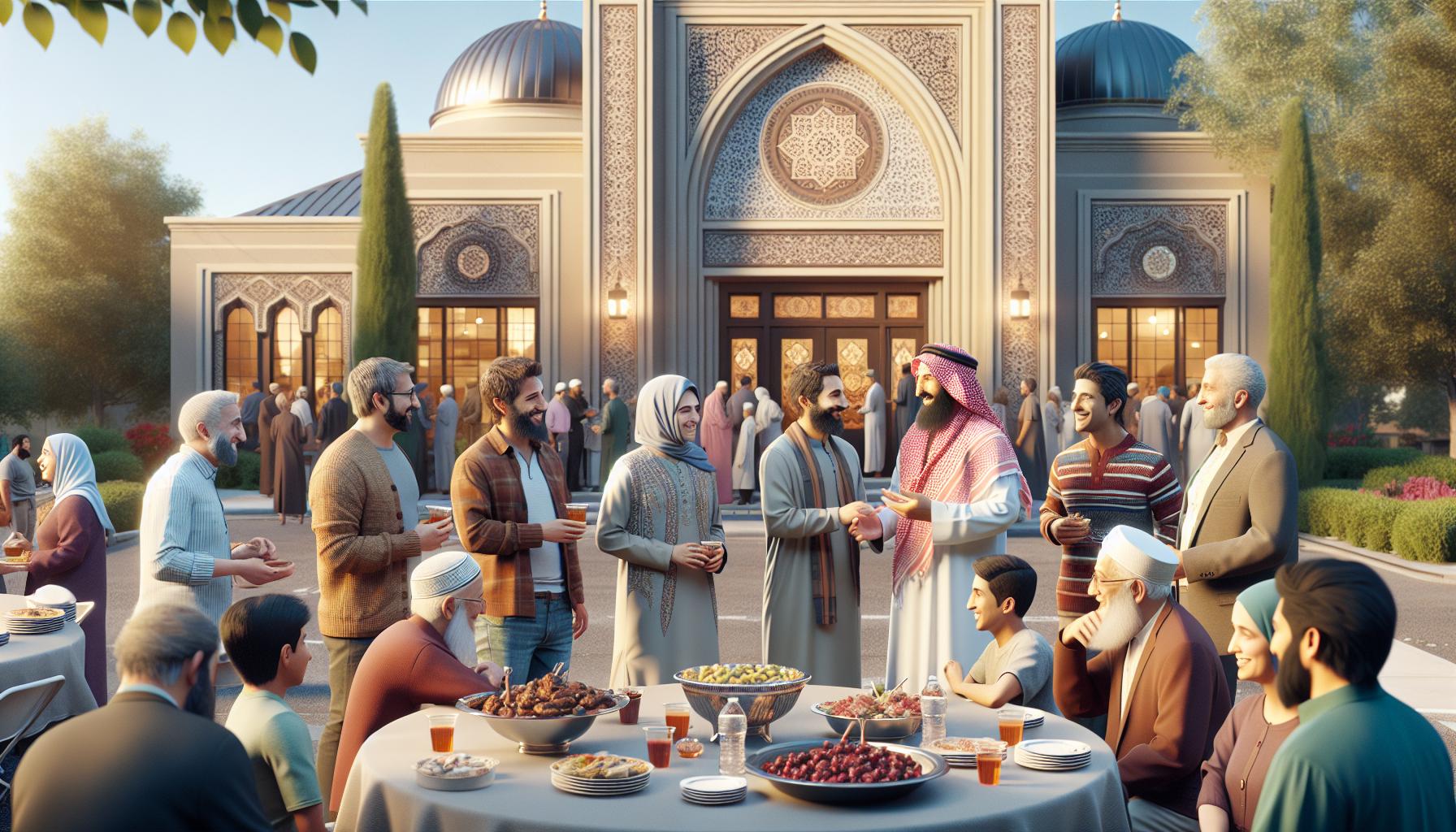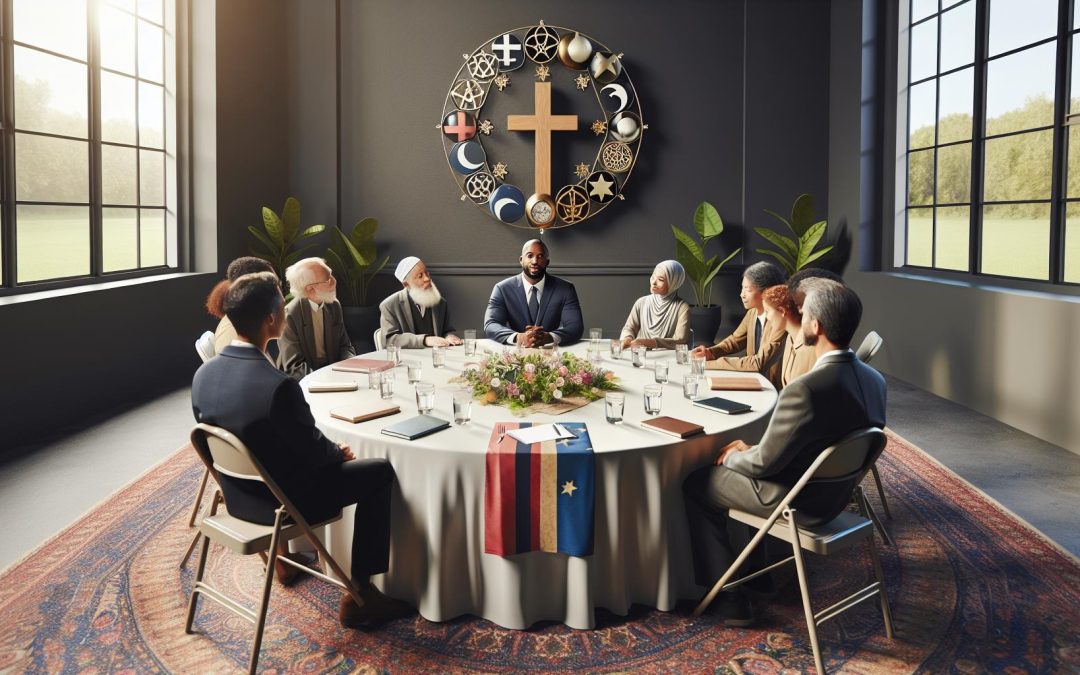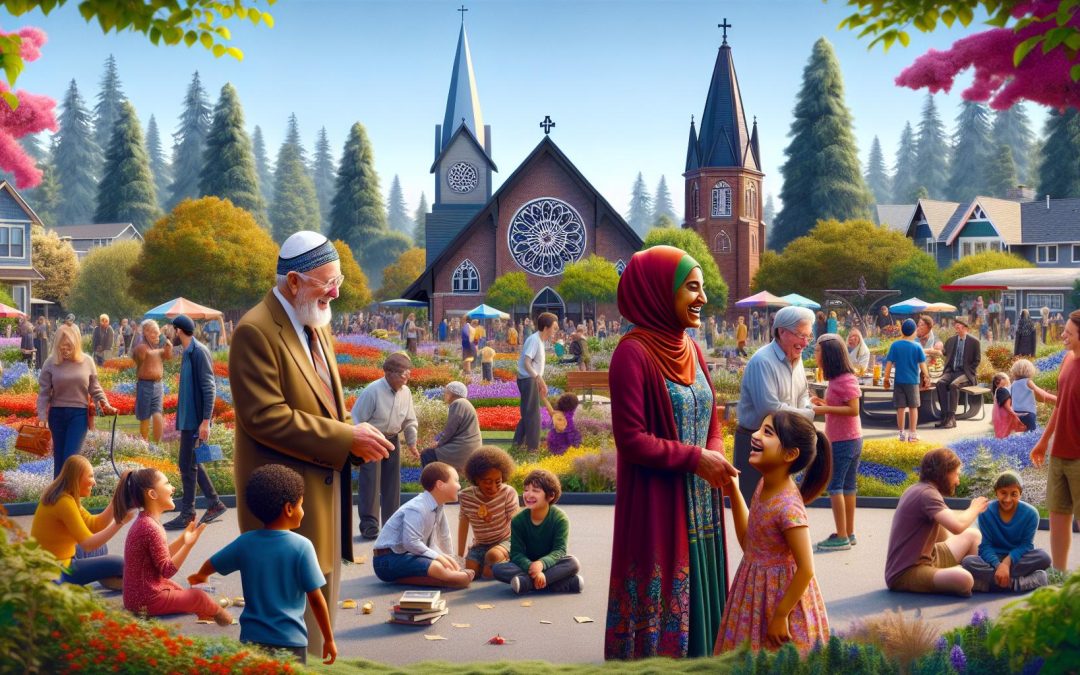Exploring the rich tapestry of cultures in Kirkland, I’ve discovered a vibrant mosaic of traditions that beautifully blend with the city’s modern vibe. Among these, Islamic traditions stand out, offering a glimpse into a world where faith and daily life intertwine seamlessly. Kirkland’s diverse community embraces these practices, creating a harmonious environment where everyone can learn and grow together.
As I delved deeper, I found that Islamic customs in Kirkland are more than just religious observances; they’re a way of life that fosters unity and understanding. From the rhythmic call to prayer echoing through neighborhoods to the warm gatherings during Ramadan, these traditions invite everyone to experience a unique cultural journey. Join me as we explore how these customs enrich Kirkland’s community and offer a deeper understanding of our shared human experience.
Overview of Islamic Traditions
Exploring Islamic traditions provides insights into the spiritual and cultural fabric of Kirkland. Observant Muslims in the area engage in various practices central to Islam, weaving religious devotion into everyday life.
Daily prayers mark the rhythm of daily life. Muslims perform Salah, the five daily prayers, which include Fajr before dawn, Dhuhr in the afternoon, Asr in the late afternoon, Maghrib at sunset, and Isha at night. Each prayer serves as a moment of connection with God, grounding individuals who are busy with life in spiritual mindfulness.
Ramadan, the ninth month of the Islamic calendar, holds significant importance. Individuals fast from dawn until sunset, focusing on self-reflection and spiritual growth. During this special month, communities come together in mosques for Taraweeh prayers at night and break their fast with Iftar meals that often transform into communal events.
The end of Ramadan is celebrated with Eid al-Fitr. This festival promotes joy and generosity. Muslims dress in their finest clothes, exchange gifts, and share festive meals. It’s also customary to perform charitable acts known as Zakat al-Fitr to support those in need.
Eid al-Adha, another major festival, commemorates Abraham’s willingness to sacrifice his son in obedience to God. Individuals who can afford it offer Qurbani, the ritual sacrifice of an animal, with the meat typically distributed among family, friends, and the less fortunate.
Cultural traditions enhance religious observations. Heritage and national identity influence these customs, adding diversity to Islamic practices. For example, cuisine varies significantly, with distinct dishes served during religious events based on regional backgrounds. Such differences enrich the communal experience, offering a chance for the Kirkland community to share and celebrate myriad cultural heritages through food.
Mosques in Kirkland play an integral role beyond hosting prayers. They’re community hubs for educational activities, social interactions, and interfaith dialogue. Islamic centers often organize Quranic studies, language classes, and seminars on various topics, promoting learning among community members of all ages.
In navigating everyday life, individuals often integrate Islamic values that emphasize compassion, honesty, and service to others. These principles naturally flow into community interactions, fostering an environment of mutual respect and understanding. By sharing these core values, Islamic traditions contribute significantly to the harmonious coexistence in Kirkland.
Understanding these practices and values opens the door to deeper appreciation and connection within the multicultural landscape. The rich tapestry of Islamic traditions, prevalent in Kirkland, adds depth to its diversity and strengthens communal bonds.
Historical Context of Islam in Kirkland
Islamic traditions have deep roots in Kirkland, enriching its cultural diversity and community fabric. The historical ties between Islam and Kirkland can be traced through early settlers and the evolving presence of Muslim communities.
Early Presence and Growth
The early presence of Islam in Kirkland began in the mid-20th century, with the arrival of immigrants seeking better opportunities. Many came from Middle Eastern, South Asian, and North African countries, bringing with them their rich cultural and religious customs. These families gradually laid the foundation for a growing Muslim community in the area. As their numbers increased, they established small prayer groups and community gatherings in homes and rented spaces, fostering a sense of belonging and unity. By the late 20th century, the first mosques and Islamic centers were built, which became focal points for religious practice and cultural exchange. These developments paved the way for a thriving Islamic community, integrating into the broader fabric of Kirkland while preserving distinctive traditions.
Influential Figures and Organizations
Several influential figures and organizations have played pivotal roles in the growth and sustainability of Islamic traditions in Kirkland. One notable figure is Imam Jamal Farooq, who has been instrumental in promoting interfaith dialogue and community service. His leadership at the Islamic Center of Eastside has strengthened relationships with other religious communities, fostering greater understanding and cooperation. Additionally, organizations like the Kirkland Islamic Society have been crucial in organizing cultural events, educational programs, and charitable activities. These initiatives have not only supported the Muslim community but have also engaged the wider Kirkland population in meaningful cultural exchanges. By championing Islamic values and traditions, these figures and organizations have left an indelible mark on Kirkland’s multicultural identity, enriching the community’s tapestry and promoting harmony and inclusivity.
Religious Practices and Community Activities
Islamic traditions in Kirkland enrich the community with profound religious practices and vibrant activities. These actions foster unity and provide a glimpse into the cultural vibrancy of this diverse city.
Observance of Festivals
Islamic festivals in Kirkland, like Eid al-Fitr and Eid al-Adha, resonate with joy and generosity. I observe families and friends coming together, sharing meals, and exchanging gifts. These celebrations mark significant Islamic events while embracing the spirit of giving and forgiveness.
Community members gather at local mosques to perform special prayers, signaling unity and faith. I see people dressed in their finest attire, exchanging warm greetings as they enjoy traditional foods. These events also offer opportunities to engage with various cultures, showcased through diverse cuisines and storytelling.
Ramadan, a month-long observance, involves fasting from sunrise to sunset. I notice a heightened sense of mindfulness and spiritual reflection among participants. Breaking the fast with an iftar meal in the company of loved ones strengthens community bonds, with daily charity serving an essential role during this period.
Community Gatherings and Services
Mosques in Kirkland operate as vibrant hubs for community interaction. I often witness religious education sessions, which provide a space for both learning and spiritual growth. These gatherings allow members to reflect on Islamic teachings while engaging in meaningful discussions.
The Kirkland Islamic Society organizes interfaith dialogues, promoting understanding among various religious groups. I see diverse attendees sharing perspectives and insights, fostering mutual respect and collaboration. These events highlight common values and contribute to community harmony.
Social services, including charity drives and support initiatives, reflect the Islamic ethos of service to others. I watch as volunteers work tirelessly, offering aid to those in need. Resources like food banks and donation campaigns address challenges within the wider Kirkland community, showcasing Islam’s enduring commitment to compassion and social responsibility.
Cultural Impact on Kirkland
Islamic traditions play an influential role in shaping Kirkland’s cultural identity. Their presence fosters unity and diversity, demonstrating the harmonious coexistence of varied customs.
Integration with Local Customs
In Kirkland, Islamic traditions blend seamlessly with local customs. Mosques often participate in community events, demonstrating a commitment to civic involvement. During Ramadan, interfaith iftars welcome neighbors of all faiths, turning fasting into a shared community experience. Celebrations such as Eid reflect both traditional Islamic practices and local cultural influences, with festivals often featuring diverse foods and activities appealing to the broader community. Through these interactions, Islamic traditions contribute to a rich tapestry of cultural intersectionality, creating a welcoming environment for all residents.
Contributions to Diversity
Islamic traditions enhance Kirkland’s diverse cultural landscape. Community events sponsored by Islamic organizations highlight cultural aspects like music, art, and fashion from different Islamic cultures. Educational workshops about Islamic heritage and its global influence offer residents insight into cultural nuances, deepening understanding and appreciation. Charity initiatives within Islamic communities often collaborate with local groups, supporting inclusive efforts to address social needs. These contributions to diversity exemplify how embracing Islamic traditions enriches Kirkland, enhancing its reputation as a multicultural hub.
Challenges Faced by the Islamic Community
Islamic community members in Kirkland navigate several challenges, particularly those stemming from stereotypes and efforts to foster inclusion and unity. Understanding these aspects can help bridge gaps and enhance community connections.
Stereotypes and Misunderstandings
Many Muslims in Kirkland deal with stereotypes and misunderstandings about their faith. Media portrayal often perpetuates negative stereotypes, leading some residents to make inaccurate assumptions. This changes their interactions with Muslim community members, impacting social harmony. For instance, certain attire, such as hijabs, might be misconstrued as symbols of oppression, which can create an unwelcome atmosphere for Muslim women.
Moreover, cultural ignorance sometimes leads to the Muslims being asked to defend or explain their beliefs unnecessarily. These situations can cause frustration and stress, driving a wedge between communities and hindering integration. Efforts to dispel myths often involve educational initiatives and open dialogues, helping to correct misconceptions and foster mutual respect among Kirkland’s diverse residents.
Efforts towards Inclusion and Unity
To counter challenges of inclusion and promote unity, various initiatives occur in Kirkland. Local mosques play a vital role by organizing events and inviting non-Muslims to participate in celebrations like Ramadan iftars. These shared experiences help people of different faiths connect on deeper levels, building understanding and empathy.
Community groups and organizations like the Kirkland Islamic Society actively engage in interfaith dialogues, addressing collective concerns and fostering solidarity. Participating in city events and cultural festivals showcases the rich Islamic heritage, promoting an appreciation of diversity. Collaborative efforts support inclusive policies, ensuring all community members feel valued and connected in Kirkland. By prioritizing these initiatives, Kirkland strengthens its reputation as a multicultural and welcoming environment.
Conclusion
Exploring the Islamic traditions in Kirkland has been a journey of discovering how these customs beautifully weave into the community’s fabric. I’ve come to appreciate how they enrich the cultural landscape, fostering unity and understanding among residents. The vibrant celebrations and shared experiences offer a glimpse into the diverse and harmonious world that Kirkland embodies.
Witnessing the efforts to promote inclusivity and counter challenges has been inspiring. It’s heartening to see how community members work together to ensure everyone feels valued and connected. Islamic traditions not only enhance Kirkland’s cultural diversity but also underscore the importance of compassion and mutual respect. As we continue to learn from one another, Kirkland remains a shining example of multicultural harmony and inclusivity.





0 Comments